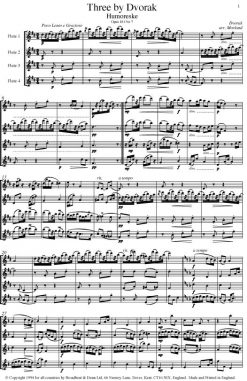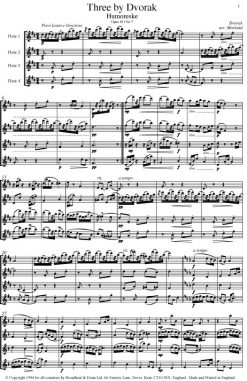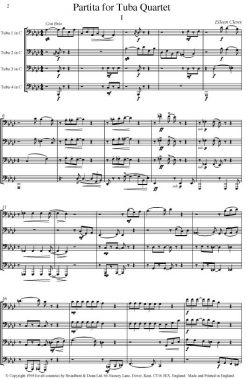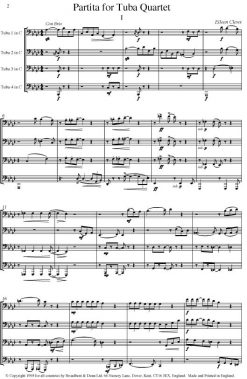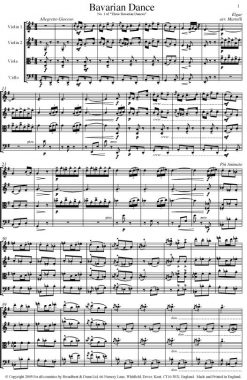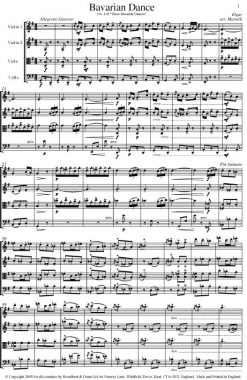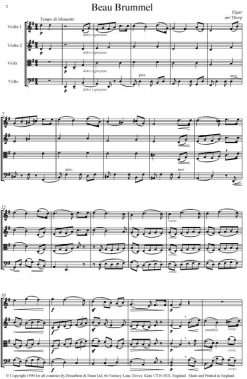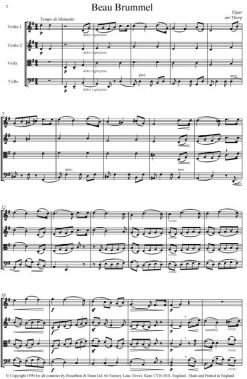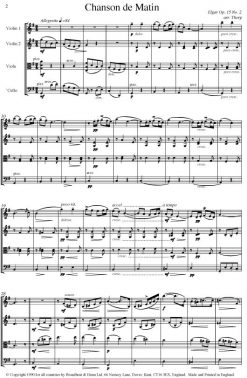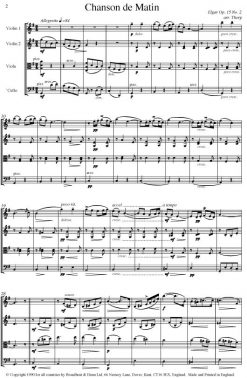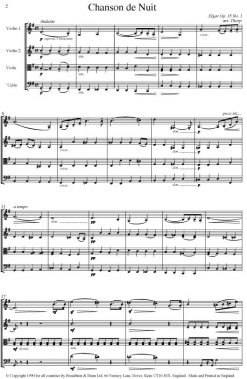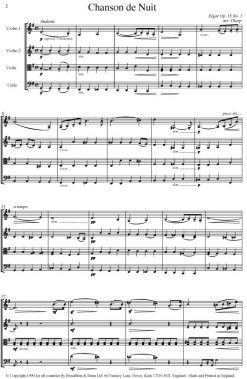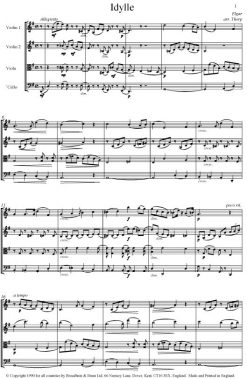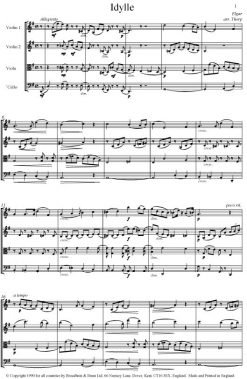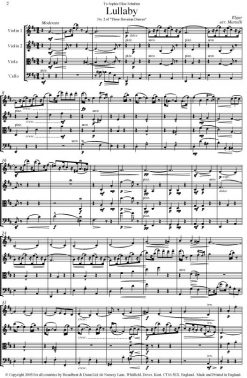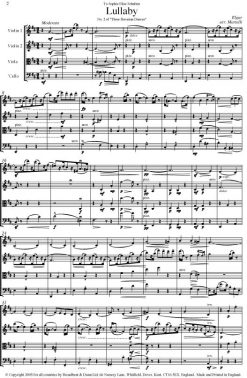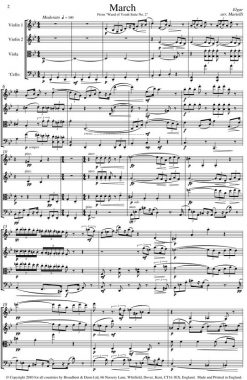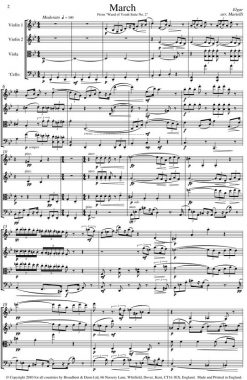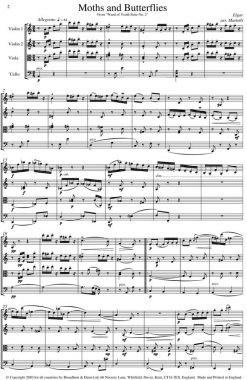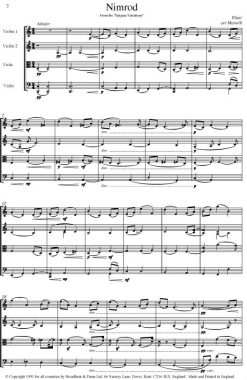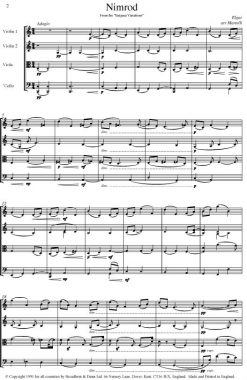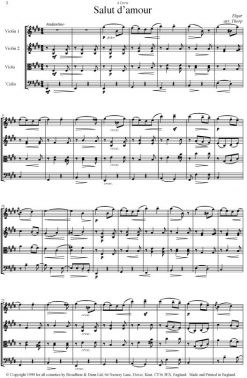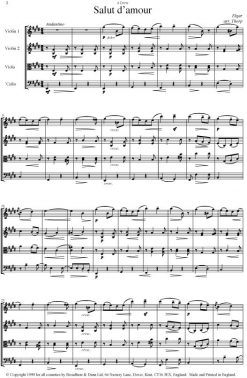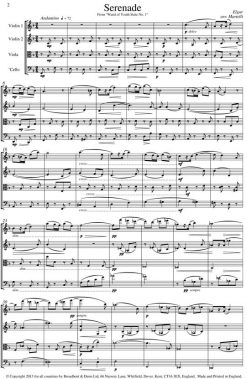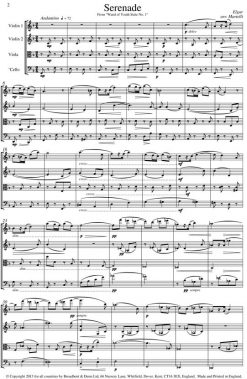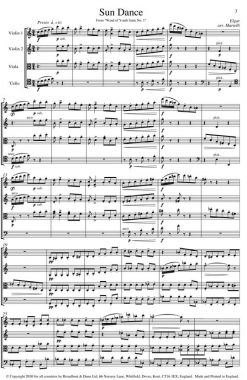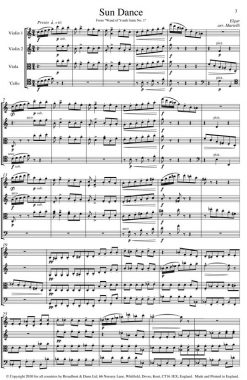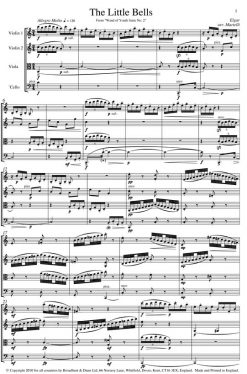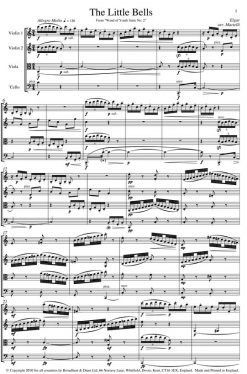Elgar, Edward
Elgar – Bavarian Dance from Three Bavarian Dances (String Quartet Parts) – Parts Digital Download
Elgar, Edward
Elgar – Bavarian Dance from Three Bavarian Dances (String Quartet Score) – Score Digital Download
Elgar, Edward
Elgar – Chanson De Matin, Opus 15 No. 2 (String Quartet Parts) – Parts Digital Download
Elgar, Edward
Elgar – Chanson De Matin, Opus 15 No. 2 (String Quartet Score) – Score Digital Download
Elgar, Edward
Elgar – Chanson De Nuit, Opus 15 No. 1 (String Quartet Parts) – Parts Digital Download
Elgar, Edward
Elgar – Chanson De Nuit, Opus 15 No. 1 (String Quartet Score) – Score Digital Download
Elgar, Edward
Elgar – Lullaby from Three Bavarian Dances (String Quartet Parts) – Parts Digital Download
Elgar, Edward
Elgar – Lullaby from Three Bavarian Dances (String Quartet Score) – Score Digital Download
Elgar, Edward
Elgar – March from Wand of Youth Suite No. 2 (String Quartet Parts) – Parts Digital Download
Elgar, Edward
Elgar – March from Wand of Youth Suite No. 2 (String Quartet Score) – Score Digital Download
Elgar, Edward
Elgar, Edward
Elgar, Edward
Elgar – Serenade from Wand of Youth Suite No. 1 (String Quartet Parts) – Parts Digital Download
Elgar, Edward
Elgar – Serenade from Wand of Youth Suite No. 1 (String Quartet Score) – Score Digital Download
Elgar, Edward
Elgar – Sun Dance from Wand of Youth Suite No. 1 (String Quartet Parts) – Parts Digital Download
Sun Dance is the fourth movement of Elgar's Wand of Youth Suite No. 1, first performed at the Queen's Hall in London in December 1907 and conducted by Henry Wood - arranged here for String Quartet by Carlo Martelli.
Elgar, Edward
Elgar – Sun Dance from Wand of Youth Suite No. 1 (String Quartet Score) – Score Digital Download
Sun Dance is the fourth movement of Elgar's Wand of Youth Suite No. 1, first performed at the Queen's Hall in London in December 1907 and conducted by Henry Wood - arranged here for String Quartet by Carlo Martelli.
Elgar, Edward
Elgar, Edward
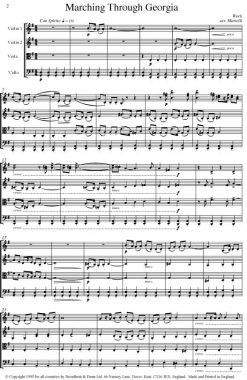 Work - Marching Through Georgia (String Quartet Score) - Score Digital Download
Work - Marching Through Georgia (String Quartet Score) - Score Digital Download 
